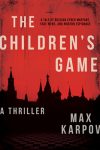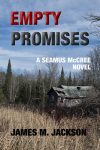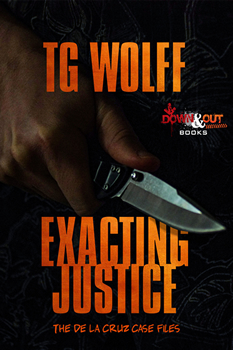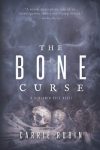

April 16 – 22: “What kind of reading material do you select while writing a new draft?”
 Dp you read while you write? If so, what kind of reading material do you select while writing a new draft? We posed this question to ITW Members Heather Graham, Michael Bradley, James M. Jackson, Max Karpov, Ann Parker, Robert Black Whitehill, T.G. Wolff, Carrie Rubin and Kelli Stanley and can’t wait to read what they have to say! Scroll down to the “comments” section to follow along.
Dp you read while you write? If so, what kind of reading material do you select while writing a new draft? We posed this question to ITW Members Heather Graham, Michael Bradley, James M. Jackson, Max Karpov, Ann Parker, Robert Black Whitehill, T.G. Wolff, Carrie Rubin and Kelli Stanley and can’t wait to read what they have to say! Scroll down to the “comments” section to follow along.
 Kelli Stanley is the Macavity Award-winning creator of the Miranda Corbie series (City of Dragons, City of Secrets, City of Ghosts), literary noir novels set in 1940 San Francisco and featuring “one of crime’s most arresting heroines” (Library Journal). She is also a Bruce Alexander Award and Golden Nugget Award winner, and a Shamus Award and Los Angeles Times Book Prize finalist. Kelli has also published numerous short stories and essays, holds a Master’s Degree in Classics, and prefers her bourbon neat.
Kelli Stanley is the Macavity Award-winning creator of the Miranda Corbie series (City of Dragons, City of Secrets, City of Ghosts), literary noir novels set in 1940 San Francisco and featuring “one of crime’s most arresting heroines” (Library Journal). She is also a Bruce Alexander Award and Golden Nugget Award winner, and a Shamus Award and Los Angeles Times Book Prize finalist. Kelli has also published numerous short stories and essays, holds a Master’s Degree in Classics, and prefers her bourbon neat.
 Robert Blake Whitehill is a screenwriter and author of the award-winning, critically acclaimed, bestselling Ben Blackshaw Thrillers set on Smith Island in the Chesapeake Bay. He has written highly rated true crime TV for Discovery, including The New Detectives, as well as UXO (Unexploded Ordnance), a feature script that won Whitehill a fellowship from the Alfred P. Sloan Foundation.
Robert Blake Whitehill is a screenwriter and author of the award-winning, critically acclaimed, bestselling Ben Blackshaw Thrillers set on Smith Island in the Chesapeake Bay. He has written highly rated true crime TV for Discovery, including The New Detectives, as well as UXO (Unexploded Ordnance), a feature script that won Whitehill a fellowship from the Alfred P. Sloan Foundation.
 Max Karpov is the author of the new Russia thriller The Children’s Game. Karpov is the nom de plume of James Lilliefors, who also writes the Bowers and Hunter mystery series (The Psalmist, The Tempest), featuring Methodist pastor Luke Bowers and homicide detective (and agnostic) Amy Hunter. Karpov/Lilliefors is a native of the Washington, D.C. area. He currently lives with his wife in South Florida.
Max Karpov is the author of the new Russia thriller The Children’s Game. Karpov is the nom de plume of James Lilliefors, who also writes the Bowers and Hunter mystery series (The Psalmist, The Tempest), featuring Methodist pastor Luke Bowers and homicide detective (and agnostic) Amy Hunter. Karpov/Lilliefors is a native of the Washington, D.C. area. He currently lives with his wife in South Florida.
 James M. Jackson authors the Seamus McCree series consisting of five novels and one novella. Jim splits his time between the deep woods of Michigan’s Upper Peninsula and Georgia’s Lowcountry. He claims the moves between locations are weather-related, but others suggest they may have more to do with not overstaying his welcome. He is a member of International Thriller Writers and the past president of the 700+ member Guppy Chapter of Sisters in Crime.
James M. Jackson authors the Seamus McCree series consisting of five novels and one novella. Jim splits his time between the deep woods of Michigan’s Upper Peninsula and Georgia’s Lowcountry. He claims the moves between locations are weather-related, but others suggest they may have more to do with not overstaying his welcome. He is a member of International Thriller Writers and the past president of the 700+ member Guppy Chapter of Sisters in Crime.
 TG Wolff writes thrillers and mysteries that play within the gray area between good and bad, right and wrong. Cause and effect drive the stories, drawing from 20+ years’ experience in Civil Engineering, where “cause” is more often a symptom of a bigger, more challenging problem. Diverse characters mirror the complexities of real life and real people, balanced with a healthy dose of entertainment. TG Wolff holds a Master’s Degree in Civil Engineering and is a member of Mystery Writers of America and Sisters in Crime.
TG Wolff writes thrillers and mysteries that play within the gray area between good and bad, right and wrong. Cause and effect drive the stories, drawing from 20+ years’ experience in Civil Engineering, where “cause” is more often a symptom of a bigger, more challenging problem. Diverse characters mirror the complexities of real life and real people, balanced with a healthy dose of entertainment. TG Wolff holds a Master’s Degree in Civil Engineering and is a member of Mystery Writers of America and Sisters in Crime.
 Michael Bradley was born and raised in New Jersey, a fact that he hopes people won’t hold against him. He started life as a radio disc jockey, spending eight years “on-the-air” before realizing that he needed to get a real job. His broadcasting experience was handy for his supernatural thriller SIRENS IN THE NIGHT. It’s been called “smart, terrifying, heartbreaking” and a “compelling read”. His new thriller, FOLLOW YOU DOWN, was released this month from Amberjack Publishing.
Michael Bradley was born and raised in New Jersey, a fact that he hopes people won’t hold against him. He started life as a radio disc jockey, spending eight years “on-the-air” before realizing that he needed to get a real job. His broadcasting experience was handy for his supernatural thriller SIRENS IN THE NIGHT. It’s been called “smart, terrifying, heartbreaking” and a “compelling read”. His new thriller, FOLLOW YOU DOWN, was released this month from Amberjack Publishing.
 New York Times and USA Today bestselling author, Heather Graham, majored in theater arts at the University of South Florida. After a stint of several years in dinner theater, back-up vocals, and bartending, she stayed home after the birth of her third child and began to write. Her first book was with Dell, and since then, she has written over two hundred novels and novellas including category, suspense, historical romance, vampire fiction, time travel, occult and Christmas family fare. She is pleased to have been published in approximately twenty-five languages. She has written over 200 novels and has 60 million books in print. She has been honored with awards from booksellers and writers’ organizations for excellence in her work, and she is also proud to be a recipient of the Silver Bullet from Thriller Writers and was also awarded the prestigious Thriller Master in 2016.
New York Times and USA Today bestselling author, Heather Graham, majored in theater arts at the University of South Florida. After a stint of several years in dinner theater, back-up vocals, and bartending, she stayed home after the birth of her third child and began to write. Her first book was with Dell, and since then, she has written over two hundred novels and novellas including category, suspense, historical romance, vampire fiction, time travel, occult and Christmas family fare. She is pleased to have been published in approximately twenty-five languages. She has written over 200 novels and has 60 million books in print. She has been honored with awards from booksellers and writers’ organizations for excellence in her work, and she is also proud to be a recipient of the Silver Bullet from Thriller Writers and was also awarded the prestigious Thriller Master in 2016.
 A science writer by day and a crime fiction writer by night, Ann Parker pens the award-winning Silver Rush historical mystery series, set in the 1880s American West. The series features Leadville, Colorado, saloon-owner Inez Stannert—a woman with a mysterious past, a complicated present, and an uncertain future. Ann’s ancestors include a great-grandfather who was a blacksmith in Leadville, a grandmother who worked at the bindery of Leadville’s Herald Democrat newspaper, and a grandfather who was a Colorado School of Mines professor, and another grandfather who worked as a gandy dancer on the Colorado railroads. The series has won numerous awards, including the Colorado Book Award, the Colorado Gold Award, the Willa Literary Award, and the Bruce Alexander Historical Mystery Award. A DYING NOTE, the sixth in the series, brings Inez to 1881 San Francisco, California. Scheduled for release April 2018.
A science writer by day and a crime fiction writer by night, Ann Parker pens the award-winning Silver Rush historical mystery series, set in the 1880s American West. The series features Leadville, Colorado, saloon-owner Inez Stannert—a woman with a mysterious past, a complicated present, and an uncertain future. Ann’s ancestors include a great-grandfather who was a blacksmith in Leadville, a grandmother who worked at the bindery of Leadville’s Herald Democrat newspaper, and a grandfather who was a Colorado School of Mines professor, and another grandfather who worked as a gandy dancer on the Colorado railroads. The series has won numerous awards, including the Colorado Book Award, the Colorado Gold Award, the Willa Literary Award, and the Bruce Alexander Historical Mystery Award. A DYING NOTE, the sixth in the series, brings Inez to 1881 San Francisco, California. Scheduled for release April 2018.
 Carrie Rubin is an award-winning medical thriller author with a background in medicine and public health. Her latest novel, The Bone Curse, is a genre-bending thriller that pits Western medicine against Haitian Vodou. It’s the first in a series about a man of science who gets caught up in otherworldly situations. Her other novels include Eating Bull and The Seneca Scourge. She is a member of the International Thriller Writers association. She lives in Ohio with her husband and two sons.
Carrie Rubin is an award-winning medical thriller author with a background in medicine and public health. Her latest novel, The Bone Curse, is a genre-bending thriller that pits Western medicine against Haitian Vodou. It’s the first in a series about a man of science who gets caught up in otherworldly situations. Her other novels include Eating Bull and The Seneca Scourge. She is a member of the International Thriller Writers association. She lives in Ohio with her husband and two sons.
- LAST GIRL MISSING with K.L. Murphy - July 25, 2024
- CHILD OF DUST with Yigal Zur - July 25, 2024
- THE RAVENWOOD CONSPIRACY with Michael Siverling - July 19, 2024
